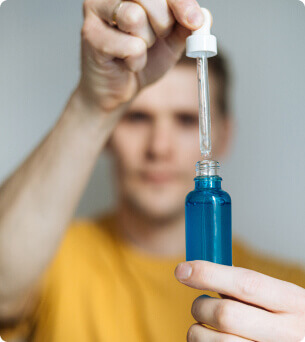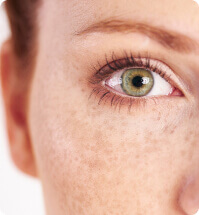For good health, adequate vitamin D is important. Yet many people struggle with vitamin D deficiency, often without realizing it. We list all about this essential vitamin in this article.

What is vitamin D and what does it do?
Vitamin D is a fat-soluble vitamin that stimulates the absorption of calcium and phosphate from the intestines. With that, vitamin D is important for building bones and joints, the immune system and muscles, among other things, and thus a deficiency can lead to (serious) health problems.
Vitamin D is found in a variety of foods and is available in the form of dietary supplements. However, the most important source of vitamin D is sunlight. UV-B radiation from the sun causes the formation of vitamin D in the skin, which is then stored in the body’s tissues. The degree of exposure to sunlight determines about 90% of the amount of vitamin D in the body.
Vitamin D deficiency
It is estimated that a significant portion of the Dutch population has a vitamin D deficiency, also known as vitamin D deficiency. The main reason for the large-scale shortage, is the fact that the Netherlands has relatively few sunshine hours. This is particularly problematic in the winter months. People who (can) get outside little are more at risk of deficiency. Consider the elderly or people who should not overexpose their skin to the sun. People with dark skin are also at greater risk of vitamin D deficiency because vitamin D is less easily absorbed in dark skin. These groups often need extra vitamin D.


Recommended daily dosage
The recommended daily amount of vitamin D depends largely on age. The Nutrition Center recommends a vitamin D intake of 10 micrograms per day for people younger than 70. For people older than 70, the recommended daily intake is 20 micrograms per day. Vitamin D is mainly found in fatty fish, meat, eggs and butter. Vitamin D is added extra to low-fat margarine, margarine and baking and frying products in the Netherlands.
Symptoms of vitamin D deficiency and associated consequences?
Vitamin D deficiency in adults leads primarily to bone and muscle problems. This may manifest itself in:
- muscle pain and cramp
- muscle weakness especially of upper legs
- bone pain especially in the hips
- difficulty walking
- loss of bone density and higher risk of bone fractures after a fall
In addition, several studies show that vitamin D deficiency may be linked to a higher risk of cardiovascular disease, type 2 diabetes, colon cancer, infections and autoimmune diseases. However, a causal relationship has not been proven to date, and it is unclear whether supplementation of vitamin D lowers the possible risk.



Related tests


A home test especially for athletes. Provides insight into essential blood values. Free home delivery. Fast results online and in the Easy app.

Preventing a vitamin D deficiency
Preventing vitamin D deficiency is simple: spend 15 to 30 minutes outside daily, preferably between 11 a.m. and 3 p.m. People who belong to a high-risk group may benefit from vitamin D supplementation, in which case consult your doctor or other health care provider for proper medical advice.

Vitamin D in food
Too much vitamin D is harmful. This is called vitamin D toxicity. Toxicity, however, is not easily achieved. Studies show that toxicity occurs at daily intakes exceeding 250 micrograms (25x the daily recommended amount) and at blood vitamin D levels above 220.
A vitamin D surplus leads to excess calcium. Too much calcium (hypercalcemia) causes symptoms such as muscle weakness, confusion, loss of consciousness, nausea and vomiting. Therefore, it is important not to exceed the daily recommended dosage of vitamin D.
Is too much vitamin D supplementation harmful?
Too much vitamin D is harmful. This is called vitamin D toxicity. However, toxicity is not simply achieved. Studies show that toxicity occurs with a daily intake of more than 250 micrograms (25x the daily recommended amount) and with a vitamin D value in the blood of more than 220.
A vitamin D surplus leads to an excess of calcium. Too much calcium (hypercalcemia) causes symptoms such as muscle weakness, confusion, loss of consciousness, nausea and vomiting. Therefore, it is important not to exceed the daily recommended dosage of vitamin D.


Test your vitamin D yourself
Do you suspect vitamin D deficiency? A vitamin D deficiency is easily diagnosed through blood tests. Through a simple finger prick, you take some blood from yourself. This is then regularly analyzed in the laboratory and interpreted by one of our physicians. You will also be provided with targeted advice based on your results. Interested? Then order the vitamin D test on the website.







